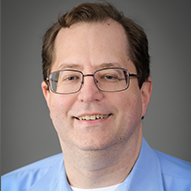
Daniel Kelly Noland, MD
Pathologist
Associate Professor at UT Southwestern Medical Center
Service Chief at Children's Health
- Languages Spoken:
- English

Biography
Daniel Noland, M.D., is medical director of the Transfusion and Tissue Service at Children's Health℠. He is also an assistant professor of pathology at UT Southwestern Medical Center.
He completed medical school at the University of North Carolina at Chapel Hill, a pathology residency at the Medical College of Georgia and a transfusion medicine fellowship at Washington University in St. Louis. He is board-certified in clinical pathology with subspecialty boards in transfusion medicine.
Dr. Noland's research interests include all of pediatric transfusion medicine with a special focus on clinical apheresis and massive transfusion.
Education and Training
- Medical School
- University of North Carolina at Chapel Hill (Med) (1998)
- Internship
- Riverside Family Practice (1999), Family Medicine
- Residency
- Medical College of Georgia - Children's (2007), Pathology
Riverside Family Practice (2001), Family Medicine - Fellowship
- Washington University (2008), Clinical Pathology
- Board Certification
- American Board of Pathology/Clinical Pathology
Departments and Programs
-
Research Interests
- Pediatric Transfusion Medicine
- Therapeutic Apheresis
-
Publications
- Noland D and Greenberg B. “Safety and efficacy of plasma exchange in pediatric transverse myelitis. Neurology Clinical Practice. June 2018; 8(4):1-4. PMID: 30140584DOI:
- Noland DK, Apelt N, Greenwell C, Tweed J, Notrica DM, Garcia NM, Todd Maxson R, Eubanks JW 3rd, Alder AC.” Massive transfusion in pediatric trauma: An ATOMAC perspective. J Pediatr Surg.2019 Feb;54(2):345-349. PMID:30389149 DOI: 10.1016/j.jpedsurg.2018.10.040.
- Unusual Presentation of Anti-P1 Antibody in a Pediatric Patient, Noland, DK, Zaloga, WF, and Cook, LO ASCP Checksample 4/2007
-
Professional Activities
- American Society For Apheresis (2010), (ASFA)
- American Association of Blood Banks (AABB) (2007)
- College of American Pathologists (CAP) (2004)